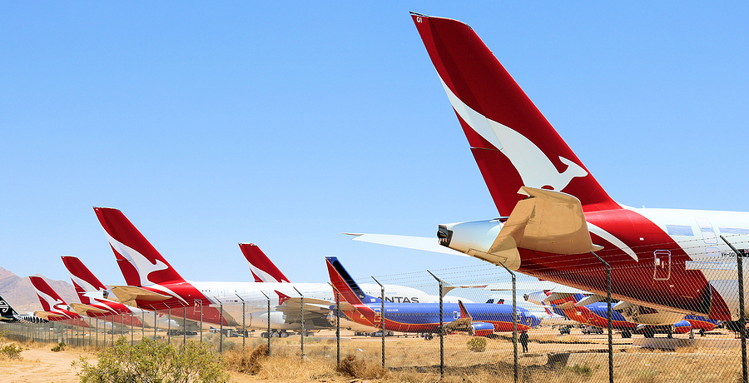Can You Bet On Climate Change?
 There is no denying that climate change is currently one of the biggest debates taking place. Not just in official channels, but between everyday people as well. With the recent COP26 meeting in Scotland with world leaders to discuss the issue, hopes are high that changes will be made around the globe to combat the crisis.
There is no denying that climate change is currently one of the biggest debates taking place. Not just in official channels, but between everyday people as well. With the recent COP26 meeting in Scotland with world leaders to discuss the issue, hopes are high that changes will be made around the globe to combat the crisis.
With it being such a big debate, it would seem only natural for it to spread to other areas. Even as far as to the gambling world. But has it already penetrated into this sector? Can people place bets on climate change and when they believe it will reach its peak? Or if they believe that we can change things and stop disasters occurring?
Is betting on climate change is a good thing? Or is a little bit uncouth to be betting on something that is considered to be a crisis? Yet if it has become available, what sort of odds are sportsbooks offering on the different markets? Furthermore, have many people chosen to place a wager on climate change yet? Let’s have a delve into the potential for betting on climate change.
Climate Change Markets Became Popular in 2020

The recent COP26 summit saw leaders debating on the world’s climate change, and it also introduced a guide on how to be a sustainable sports fan. The BBC published details on four different ways that fans can reduce their carbon footprint to assist with climate change. Yet this is not the first time that climate change has been discussed. Campaigners have been trying to push people around the world to sort the situation out.
Global warming wagering was considered to be the new sports betting back in July of 2020, though. The Miami Herald spoke of the lockdowns taking place across the globe affecting the sports gaming industry, thanks to the COVID-19 pandemic. At the same time though, it was said that gamblers everywhere had the possibility of wagering on global warming. It highlighted a sportsbook that was taking bets on the situation, with markets like what the land/ocean temperature index will be for 2020 and what the carbon dioxide measurement will be in the month of August.
At the time, it was thought that the effects of coronavirus had had a large impact on the temperature of the globe. Less people were travelling and going out, factories and other businesses were reduced in operation for several months, and therefore, a reduction in carbon emissions was experienced, too. It was this that led to at least one bookmaker offering odds on climate change at that time. Of course, this was due to the pandemic and the positive effects that had been experienced on the globe because of it.
Markets included on the sportsbook were:
- What will the land/ocean temperature index be for 2020?
- What will the carbon dioxide measurement be for August 2020?
- What will the sea level rate of change be on January 1, 2021?
Things are quite different as we approach the end of 2021, though. The COVID-19 pandemic is something that people are learning to live with, and many businesses have returned to operating at similar levels to what they were previously. This has undoubtedly returned the climate temperature to levels that it was experiencing pre-coronavirus. Would placing wagers on that type of negative climate change be considered a moral activity? Or would it be looked down upon by others?
Sports Betting World Looking to Make Changes
 There have been discussions within the gambling industry over what can be done to combat climate change. Obviously, online sportsbooks and casinos already have a low carbon footprint, considering they don’t actually own physical establishments a lot of the time (other than office space for customer support advisors).
There have been discussions within the gambling industry over what can be done to combat climate change. Obviously, online sportsbooks and casinos already have a low carbon footprint, considering they don’t actually own physical establishments a lot of the time (other than office space for customer support advisors).
Betting on the climate does not seem to be something that sportsbooks are intending to introduce as a method of entertainment for punters, though. That’s not to say that it hasn’t specifically happened before. Take a look back at 2016 for example, when a climate scientist and economist won huge amounts of money by wagering on global warming.
Chris Hope, a climate economist, and James Annan, a climate scientist, placed a bet on global warming back in 2008. Speaking of the climate events at the time, Hope said that the record warmth of 2015 had netted him a payout of £1,334. He spoke of being present at a conference in Cambridge, where most of the people attending were sceptical about climate change. Hope took the microphone and asked if any of them would be willing to make a bet of £1,000 with him. That bet was that 2015 would be hotter than 2008, and two brave people stepped up to the plate in Ian Plimer and Sir Alan Rudge.
Plimer and Rudge gave him even odds, and Hope located a climate scientist in Annan to provide 4:1 odds on the opposite wager. Annan was so confident in climate change himself that he was able to perfectly hedge Hope’s bet. 2015 ended up being hotter than 2008, meaning that Plimer and Rudge both lost £1,000 each. £1,334 went to Hope, while £666 was handed over to Annan on the hedged bet.
That wager was not made through a specific online or offline bookmaker, though. It was a simple wager placed between people. It’s not the same as if Paddy Power or William Hill had been offering the market to the world. And that doesn’t look likely to become a reality, either. It’s one thing to bet against other people over the climate crisis as Hope and Annan did with Rudge and Plimer, but it’s quite another for a bookmaker to offer odds on such for registered bettors to win or lose money on.
Action should really be being taken on reducing carbon emissions and tackling climate change, rather than having people place bets on what the outcome will be. It is likely, for many people, quite unrefined to engage in such activity. In previous years, some people have placed wagers on climate change – with a point of hammering it home that the crisis is very real. And those people who wagered on climate change being very real have cashed in recently, too. Again though, these were not bets that sportsbooks thought up and provided markets on for everyone to get involved in.
Is there Potential?
 What if bookmakers in the biggest gambling areas, like Las Vegas and London for example, were to introduce a book on the climate crisis? Would those people obsessed with the climate crisis actually back their forecast for the world? There are large numbers of people on both sides of the argument, it has to be said. Some heavily believe that action needs to be taken, while others claim that the potential crisis is not something to worry about in any way, shape or form.
What if bookmakers in the biggest gambling areas, like Las Vegas and London for example, were to introduce a book on the climate crisis? Would those people obsessed with the climate crisis actually back their forecast for the world? There are large numbers of people on both sides of the argument, it has to be said. Some heavily believe that action needs to be taken, while others claim that the potential crisis is not something to worry about in any way, shape or form.
Therefore, there is no lack of opinion on the subject. The question is, would people be ready and willing to put their money where their mouth is? Plus, would governments in countries around the world permit bookmakers to introduce such markets to their sites for people to wager on?
Perhaps the largest objectors to the idea of betting on climate change would be the United Nations and climate change advocates, naturally. Then again, if the climate change predictions you made in the past had not actually come to light, you would also rally against something that some people are saying is total rubbish and would place their money on. Yet the likelihood is that very few people will actually bet against the UN on this particular issue.
If there is no market (or little market) for betting on this, then why would a sportsbook bother including it as a possibility? They’re looking for people to place wagers at their sites to try and get their share of the outcome. A market that barely anybody bets on is therefore useless to them.
One thing punters should bear in mind if they do find climate change betting markets is that many of these bets will not settle until long into the future. Therefore, you would need to be prepared to place a long term bet and take the risk that the bookie may not even be around when it settles.
Largely UK bookies, at least, have steered away from climate change betting on the basis that it is not socially responsible as ultimately climate change is going to have a negative impact on peoples lives around the world. Plus if someone does bet on climate change there is an argument that that bet in itself could influence people to not engage with reducing their carbon footprint if they could win money as a result.
Scientists Can Bet on Climate Change
 In September of 2017, it was announced that a UK hedge fund was making it possible for scientists to place bets on the future of the planet. Astrophysicist Neil deGrasse Tyson appeared on Real Time with Bill Maher, and it was there that he laid out a challenge to former GM executive Bill Lutz. Bill was described as an argent climate change denier, and Tyson challenged him to a wager on the situation.
In September of 2017, it was announced that a UK hedge fund was making it possible for scientists to place bets on the future of the planet. Astrophysicist Neil deGrasse Tyson appeared on Real Time with Bill Maher, and it was there that he laid out a challenge to former GM executive Bill Lutz. Bill was described as an argent climate change denier, and Tyson challenged him to a wager on the situation.
After a bit of back and forth, the UK hedge fund Winton Capital proceeded with setting up the first market to make predictions about climate change. This saw climate scientists given the opportunity to wager on the future of the climate, with the market paying out annually to those who are the most accurate with their predictions on such. The market was to rely on the “wisdom of the crowd”, taking the collective opinion of a group of individuals rather than that coming from just one expert.
The hedge fund proceeded with gathering the input of experts in order to make predictions about the future world temperatures and concentration of greenhouse gas. Winton also stated that it may have expanded that project to accommodate much more specific predictions about sea-level rise and regional warming, for example.
But why a UK base for the market? Well, gambling laws within the United States of America were quite uncertain at the time, especially when it came to prediction markets. Yet the climate prediction market was not brought into operation as a money-making scheme by any means. Instead, it served as a philanthropic endeavour, with the aim of generating useful information to use. The general consensus was that Winton would likely lose money on the project, due to the fact that dividends were paid out to those scientists with the most accurate future predictions.
Therefore, it can be said that this type of betting wasn’t really in the same vein as standard sports betting. It served a much larger purpose – to get the necessary information for the future of climate change. In 2017, then President of the U.S. Donald Trump made the announcement that he would withdraw his country from the Paris climate accord and also roll back regulations in relation to the production of coal. While nobody could particularly have predicted such a move would take place, it would likely have given some insight into what changes could be guessed for the future by the scientists included in the hedge fund wagering scheme.
That being said, while the hedge fund initially targeted professionals within the climate field, it was actually opened up to anyone based in the United Kingdom afterwards. It was hoped that it would be opened up first to universities later on in 2017, and then to the public some time in 2018. At the same time, it was hoped that the climate prediction market would lay certain groundwork for a more developed way of betting on the environment’s future.
Physicist and adjunct professor at the University of New Mexico, Mark Boslough, said that the problem with prediction markets was that not enough people participated in such to show a true consensus. He went on to advocate for the creation of a climate future market on the Chicago Mercantile Exchange. This would see companies in industries that were radically affected by climate change, be able to use such as a way of hedging.



